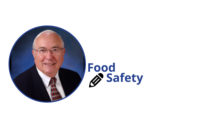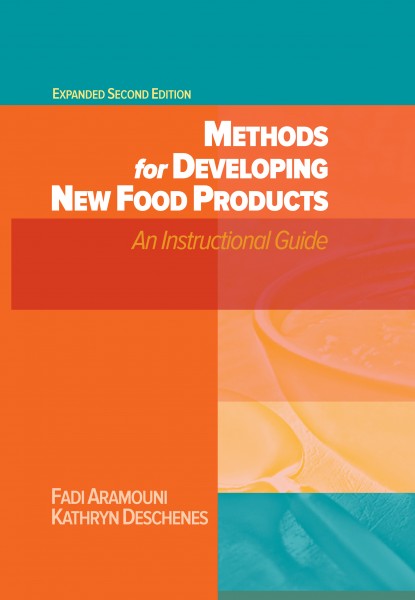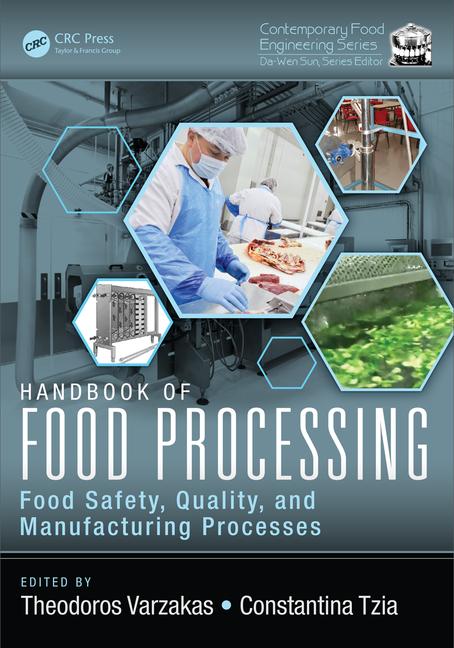Are you on target for FSMA?

 It has been 30 months since the U.S. Congress passed the Food and Drug Administration’s (FDA) Food Safety Modernization Act (FSMA). What have you done in the past 30 months in your company to prepare for the major economic impact of the biggest changes in food safety in more than 100 years?
It has been 30 months since the U.S. Congress passed the Food and Drug Administration’s (FDA) Food Safety Modernization Act (FSMA). What have you done in the past 30 months in your company to prepare for the major economic impact of the biggest changes in food safety in more than 100 years?
Even though the proposed FSMA regulations are pending or published for comment, many companies have expended considerable hours studying the requirements outlined in the act and the proposed regulations. They are planning for it and implementing the changes that are already in effect.
The FSMA places the responsibility on food manufacturers to prove that all products manufactured are safe for human and/or animal consumption. It will require companies to scientifically demonstrate that the food-product formula and the production process will render a safe product every time.
Expect to be challenged by regulatory inspectors when they are in your plant to provide scientific documentation proving the formulation and process are effective to ensure product safety. Most of the food industry has never had to provide such documentation to a regulatory inspector.
If you haven’t already done so, read the act as Congress passed it. It will provide you with a general road map of what you can expect and provide general ideas of the potential impact upon your operations. The act is available at http://www.fda.gov/Food/GuidanceRegulation/FSMA/ucm247548.htm.
Sections currently in effect
As you read the FSMA, note that several sections are already effective and require compliance. Have you complied and/or are you prepared to comply with these FSMA requirements?
Section 101. Inspection of Records: During an inspection, if the FDA discovers a condition that it believes presents a “reasonable belief” that use of, or exposure to, an article of food will cause serious adverse health consequences or death, it gives the department the authority to access and copy your production records.
Section 102. Registration of Facilities: The FDA required food companies to register each of their facilities with the department by Dec. 31. Exempted from registration are foodservice and food retail establishments. The FDA also has the authority to suspend a company’s registration and prevent it from operating when it determines there is a reasonable probability that the use of a product could result in a serious adverse health consequence or death to humans or animals. The FDA has already used this provision to stop an operation.
Section 107. Ability to Charge Fees for Re-inspections: The FDA has the authority to charge companies fees for re-inspections following a noncompliance inspection and also for not complying with voluntary recall requests.
Section 206. Mandatory Recall Authority: The FDA will provide companies with the opportunity for a voluntary recall when there is reasonable probability that a product is adulterated. The FDA also has the authority to impose a mandatory recall if a company is unwilling to voluntarily recall the product.
Section 402. Whistleblower Protection: This section provides employee protection regarding the discharge of or discrimination against an employee who has provided information to the FDA relating to any violation of the FSMA.
Getting prepared
Training your employees on these new regulatory inspection requirements before the regulatory inspector arrives is very important. Have you updated your procedures for dealing with regulatory inspections? Have you considered reviewing the food-safety risks associated with your product(s) and the production process? Have you identified the science expertise to handle this process?
While reviewing the FSMA, also look at Section 103 on hazard analysis and risk-base preventive controls. This requirement will be a major challenge for most food companies. This section provides guidance on where you can start your preparation for compliance with the FSMA.
Author Gale Prince is founder and president of SAGE Food Safety Consultants, LLC, Cincinnati, which offers guidance and solutions to issues such as crisis management, food safety, regulatory compliance and quality assurance.
Looking for a reprint of this article?
From high-res PDFs to custom plaques, order your copy today!









